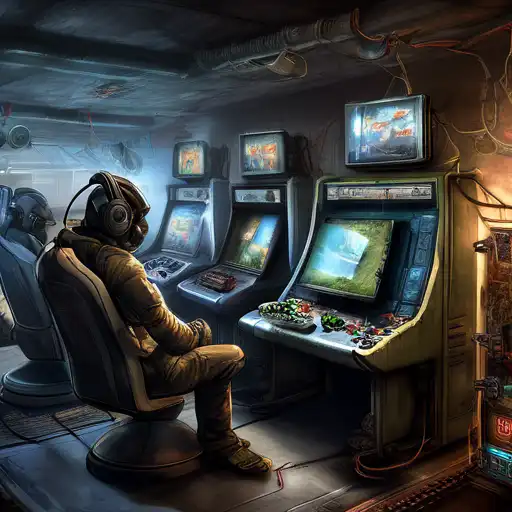The Dawn of Gaming Technology
The evolution of gaming technology is a fascinating journey that mirrors the rapid advancement of digital innovation. From the simplistic pleasures of Pong in the 1970s to the immersive virtual realities of today, gaming has undergone a transformation that has reshaped entertainment, culture, and even social interactions.
From Pixels to Virtual Realities
The early days of gaming were marked by simple, pixelated graphics and limited gameplay options. However, these foundational games laid the groundwork for the complex, narrative-driven experiences we enjoy today. The introduction of 3D graphics in the 1990s, for example, was a game-changer that opened up new possibilities for game design and player immersion.
The Rise of Online Gaming
Another significant milestone in the evolution of gaming technology was the advent of online gaming. This innovation transformed gaming from a solitary or local multiplayer activity into a global phenomenon, connecting players from around the world in shared digital landscapes. Games like World of Warcraft and Fortnite have become cultural landmarks, thanks in part to their online multiplayer formats.
The Impact of Mobile Gaming
The proliferation of smartphones has democratized gaming, making it accessible to a broader audience than ever before. Mobile games like Candy Crush Saga and Pokémon Go have shown that gaming is no longer confined to consoles or PCs but is a ubiquitous part of daily life for millions of people.
Virtual Reality and Beyond
Today, we stand on the brink of a new era in gaming technology with the rise of virtual reality (VR) and augmented reality (AR). These technologies promise to blur the lines between the digital and physical worlds, offering gamers unprecedented levels of immersion. As VR and AR technologies continue to evolve, the potential for innovative gameplay and interactive storytelling is limitless.
Looking to the Future
The future of gaming technology is as exciting as it is unpredictable. With advancements in artificial intelligence, cloud gaming, and haptic feedback, the next generation of games will likely be more immersive, interactive, and personalized than ever before. The evolution of gaming technology is a testament to human creativity and our endless pursuit of new forms of entertainment.
As we look ahead, it's clear that gaming will continue to evolve, pushing the boundaries of what's possible and redefining our expectations of digital entertainment. Whether through the development of more sophisticated VR experiences or the integration of gaming into new aspects of daily life, the journey of gaming technology is far from over.
